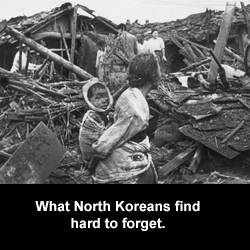This has been one of those weeks, to be sure. A lot has happened and very quickly, so let me take these one at a time.
Cuba. President Obama announced a reset of relations with Cuba this past Wednesday, an initiative that includes establishment of an American embassy in Havana and the release of the remaining members of the Cuban Five, as well as the return of Alan Gross. This somewhat surprising announcement was, of course, met with flaming hair by the conservative majority in Congress and by other longtime critics of the Cuban revolution. Marco Rubio, for instance, bemoaned the fact that the maximalist goals of conservatives were not realized on the first day of the new relationship.
Patience, Marco! The cause of neoliberalism is not yet lost. To listen to Obama’s defense of his decision, you would think the prime motivation for improved ties between the two countries is for the joys of capitalism to rain down on the hapless Cubans. God help them. Still, a pretty momentous day, to be sure.
 North Korea. When you produce a movie that makes a joke out of the assassination of the leader of a garrison state, its back against the wall for decades, you should respect a negative reaction. Agents purportedly working for North Korea have threatened violence against theaters running “The Interview”, promising 9/11 type attacks, somewhat incredibly. SONY Pictures pulled the film, generating a mountain of criticism. An AP article suggested that SONY feared hostilities against Japan by a nuclear-armed North Korea.
North Korea. When you produce a movie that makes a joke out of the assassination of the leader of a garrison state, its back against the wall for decades, you should respect a negative reaction. Agents purportedly working for North Korea have threatened violence against theaters running “The Interview”, promising 9/11 type attacks, somewhat incredibly. SONY Pictures pulled the film, generating a mountain of criticism. An AP article suggested that SONY feared hostilities against Japan by a nuclear-armed North Korea.
This is pretty overblown. Rhetoric is one thing; credible threats are something else entirely. Pyongyang’s rants against the United States and its allies are delivered in the absence of any capability to act upon them. On the other hand, when our government states that “all options are on the table” with regard to North Korea, and when we conduct massive joint maneuvers with South Korea (including mock invasions of the North), we do so in the context of overwhelming power that has been exercised against the North Koreans in the past. Best to remember that their section of the peninsula was utterly destroyed by our military in 1950-53; not a single standing structure remaining by the time we were done, and deaths in the millions. That leaves a lasting impression.
Our media-driven culture emphasizes the crazy when it focuses on North Korea. And sure, they seem particularly crazy when you ignore the history. History doesn’t excuse malevolent behavior, but it does render it more comprehensible. At the very least, it enables you to understand why a comedy about assassinating their leader might, well, make them angry.
luv u,
jp
